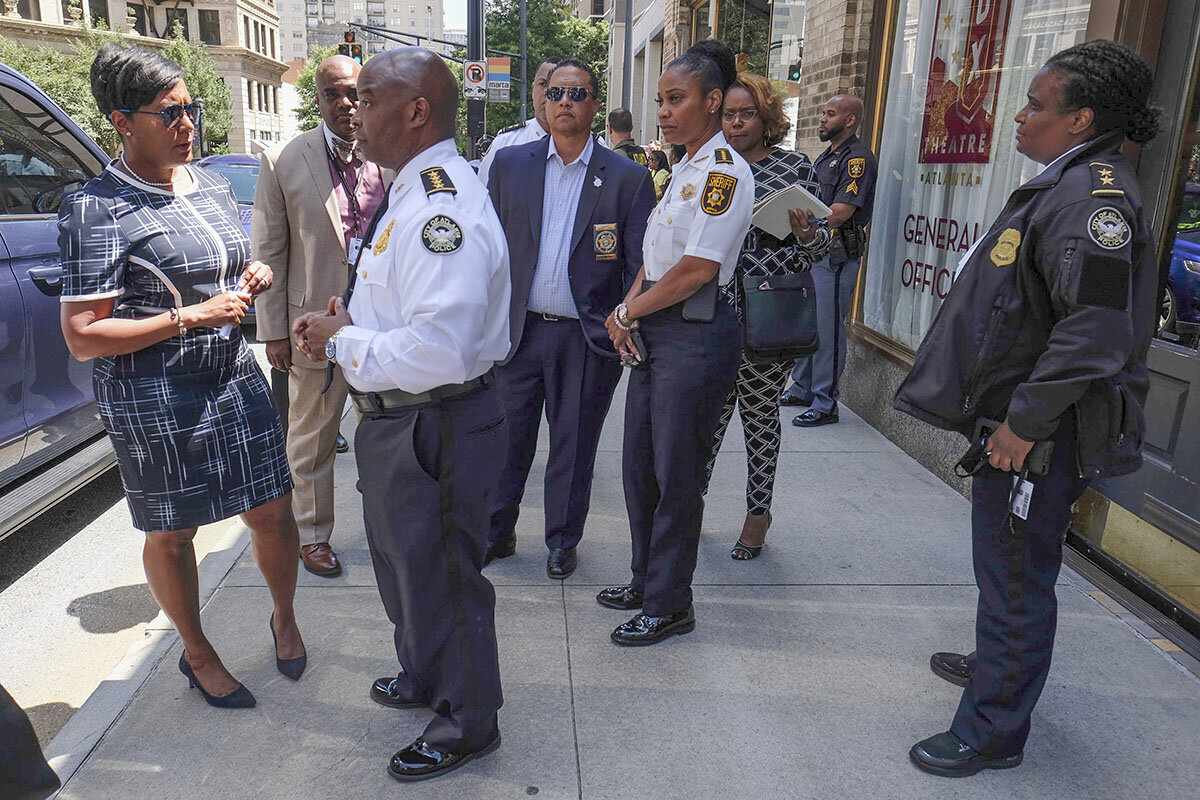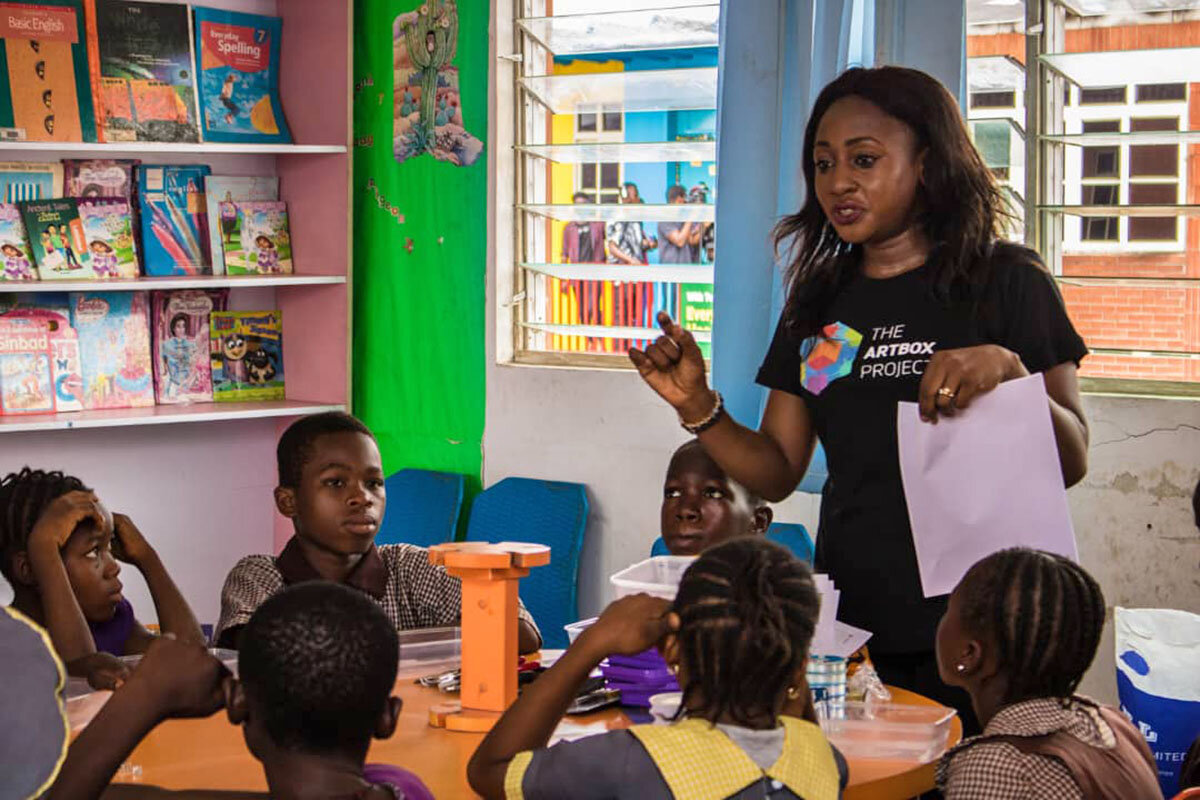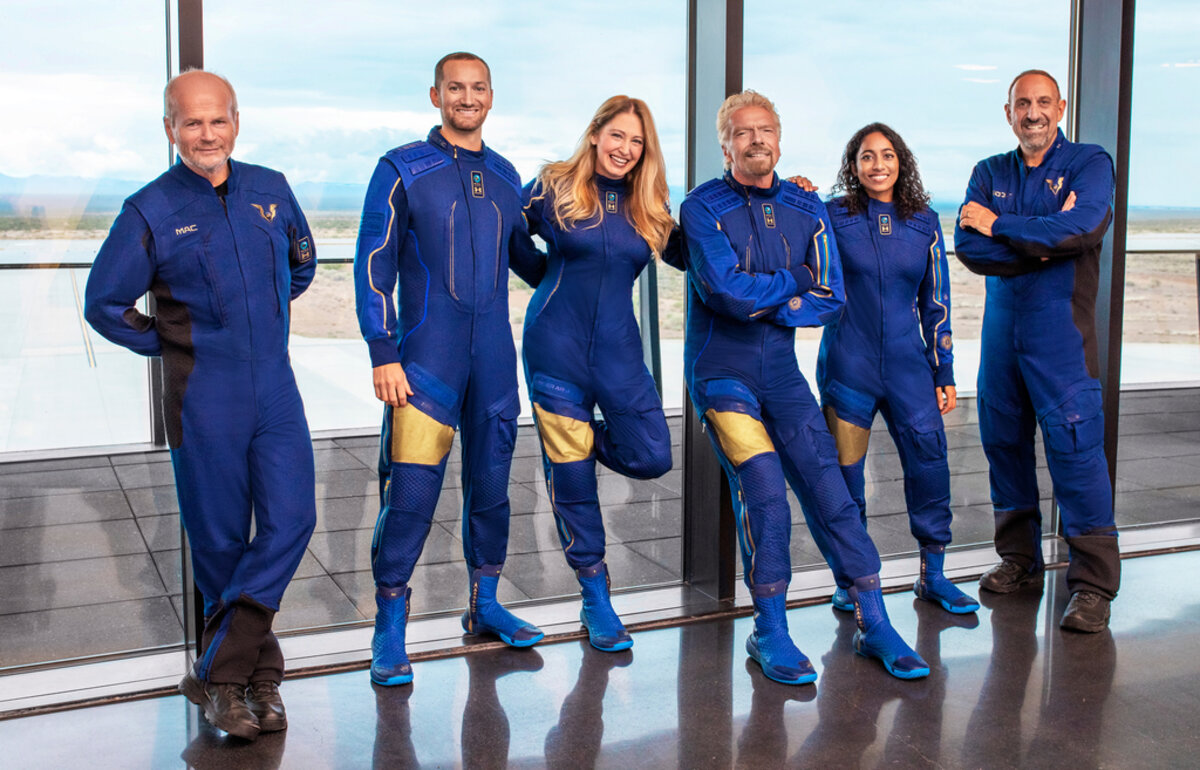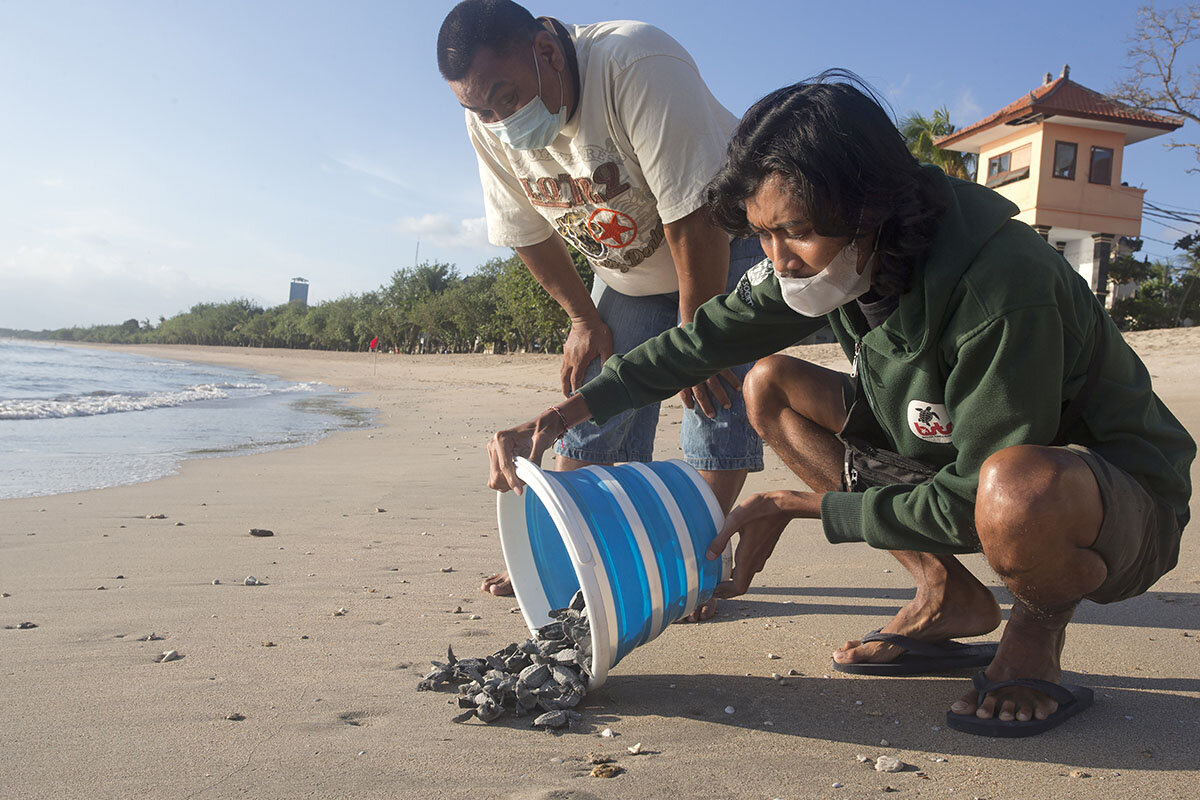As momentum to defund the police dissipates, a view from Atlanta suggests more than a crime-fueled backlash. There’s acknowledgment of the good police do, even amid urgent calls to improve.
Monitor Daily Podcast
- Follow us:
- Apple Podcasts
- Spotify
- RSS Feed
- Download
 Trudy Palmer
Trudy Palmer
Last week, a friend gave me the book “A Stronger Kinship” by historian Anna-Lisa Cox. It tells of Covert, Michigan, a small town 30 miles from my friend’s childhood home.
His nearly all-white high school had played them in sports, yet only now was he learning that more than a century ago, Black and white residents in Covert had “lived as equal citizens,” as the book puts it.
As far back as the 1860s, they treated each other as neighbors regardless of race, farming side by side and educating their children together, despite laws that forbade it. Black men not only voted with white men but ran for office and won. And women helped one another in their domestic spheres.
But it wasn’t all about work. Black and white residents worshipped and socialized together too. Covert was even a safe place to love, with a handful of people marrying across the color line.
The town wasn’t founded by abolitionists or intended as a utopia. It wasn’t perfect either, yet it rejected both slavery’s grip on the North and the nation’s post-bellum oppression: Jim Crow laws, lynchings, court-sanctioned segregation.
Against all odds, it remained “a community of radical equality” where, on a daily basis, people followed the Golden Rule.
As Dr. Cox suggests, the correct question may not be “Why did Covert happen?” but “Why not?”
“Our puzzlement over Covert reveals a hidden assumption that racism is the norm,” she writes.
That’s understandable given the nation’s history of race relations, but as she notes, “Covert reminds us that that terrible history was a choice … not a given.”










